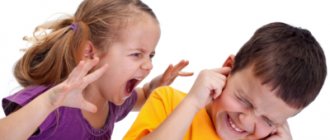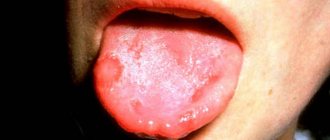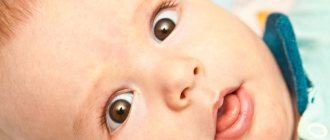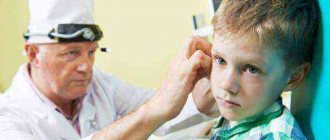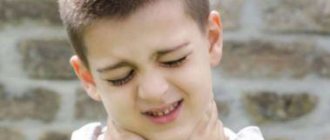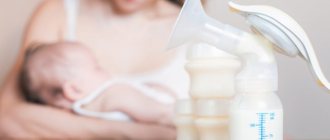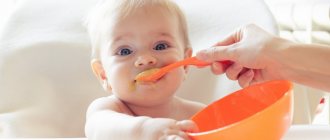Hello, dear readers! Probably, almost every young mother has encountered the fact that her baby was biting her breast. Therefore, I think this article will be useful to many. It will help you figure out the reasons for this situation; you will learn how to properly respond to this behavior of a child, as well as how to prevent bites and what to do if the baby has already begun to practice this.
Why does a baby bite the breast when feeding?
There are 8 most commonly identified reasons for this behavior of the little “toothy”:
- Incorrect placement of the baby's head to the breast. The baby simply becomes uncomfortable sucking milk, and he tries to somehow fix it and accidentally bites your breast.
- The child has sniffles and has difficulty breathing during feeding. Therefore, it is important to ensure that the nipple is in the correct position until the baby recovers.
- A common reason is that the child wants to see his mother’s eyes while he eats. He needs eye contact with his mother; it would be nice if she called the baby affectionately. And she wants to watch a movie or read a book. That’s when the child tries to attract his mother’s attention.
- The little sun's first teeth are starting to come out. This creates discomfort, itching and even pain. And with his bites he is simply trying to ease his fate.
- It happens that a child likes to play with the pacifier, pull it, grab it tightly with his teeth. And at the moment of sucking the breast, he simply does not think about the fact that there is no longer a nipple in his mouth.
- The baby may bite the breast if he is not full, and you are already taking it away. In this way he tries to retain his precious milk.
- The baby may bite the breast when falling asleep.
- There are cases where the baby simply does not have enough milk, which is produced in your breast, so he tries to “squeeze” it out.
This happened to me. My son was literally 2 weeks old. He started biting my nipple so hard (right until it bled). It felt like there was a mouth full of teeth, how painful it was. The thought even flashed through my mind that childbirth was not the most painful thing that had happened in my life. I didn’t immediately understand the reason for this behavior. The doctor explained to me that, apparently, I do not have enough milk. And she turned out to be right. She advised taking more lactogenic foods. As a result, there was so much milk that I was tired of expressing, but then everything returned to normal. And most importantly, my son really stopped biting his breast when feeding.
Why did the baby start biting the breast: reasons
A baby may bite its mother's breast for a variety of reasons.
- Teeth growth. When teething, the baby experiences severe itching and often pain. Plus, sometimes a general feeling of poor health is added to this. The child tries to alleviate his condition by any available means: he chews toys, clothes, his fingers - in a word, all objects and things that can be chewed. And, naturally, when the mother’s nipple gets into her mouth, she bites that too, sometimes even to the point of bleeding.
- Curiosity. The older the toddler, the more actively he moves, comes up with his own feeding positions, often uncomfortable for the mother, and turns his head out of curiosity, which leads to bites. According to psychologists, in this way he learns about the world around him.
- Incorrect application. With the correct deep grip, the baby is physically unable to bite the woman, since his teeth and gums do not touch the nipple. When the breast is taken incorrectly, involuntary bites occur.
- Playing with mom. The baby, of course, does not yet realize that he is hurting, but it is extremely interesting for him to watch the reaction of his loved one. He laughs when the woman gasps. It seems to the baby that this is a kind of response to his advances. Although occasionally another behavior is observed: from a cry, the baby may begin to cry and will no longer want to bite. Nipple biting is often accompanied by other actions: the child fiddles with the other breast, pinches, or grabs the mother's hair, face, and other parts of the body.
- The desire to attract mother's attention. This behavior is often observed when a woman watches TV, chats on social networks or chats on the phone while breastfeeding. Perhaps the little one has already eaten enough and is getting bored. In this situation, the female breast becomes the most accessible toy for him in order to somehow have fun.
- A small amount of milk due to insufficient lactation or poor release from the breast. The child begins to get irritated and expresses his dissatisfaction in the form of a bite.
- Attachment to the pacifier. If the baby is very accustomed to intense chewing of this object, he can easily confuse it with the breast.
- Nasal congestion. When nasal breathing is impaired, the baby will grasp the breast incorrectly and protest against the discomfort by biting.
Aspects of a child's health and development that may lead to severe bites - photo gallery
When a baby is teething, he wants to bite everything.
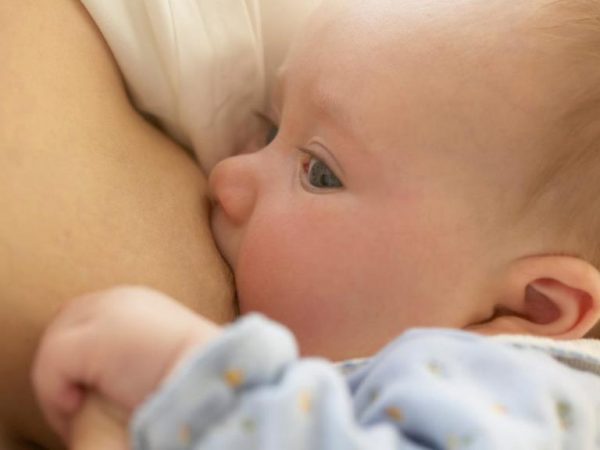
Curiosity may cause an accidental bite
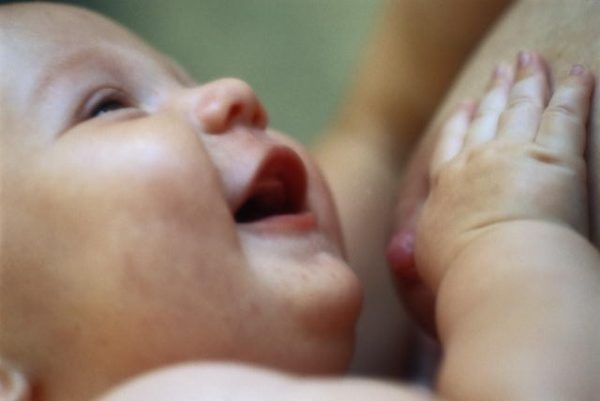
Mom's scream makes baby laugh
How not to behave in such a situation
I think everyone understands that when bitten, especially the first and unexpected one, the mother may squeal in pain. However, this can lead both to the fact that your baby understands that this cannot be done, and to the fact that, on the contrary, he decides to bite on purpose so that his mother screams. He doesn't realize that he's hurting you. In addition, to such a mother’s reaction, especially if the toddler did not bite you intentionally, but by accident, the child may react with severe fear. And then she will refuse to breastfeed altogether. And this can also provoke the emergence of a phobia and even stuttering.
So you need to be prepared for the fact that sooner or later your baby may hurt you for some reason. Under no circumstances, do not shout at the same time, and especially do not scold the child for such an offense, he still most likely will not understand anything. I wish, of course, that this does not affect you. But it's better to be warned.
If your baby does start biting you, then it’s worth finding out what measures exist to stop this behavior in your baby.
Tips for freeing your breasts
You need to be prepared for such a situation and know how to properly release your nipple so as not to harm yourself or your baby.
- Don't pull on your chest. This way you risk getting hurt even more. The child still continues to clench his jaw, but what if your baby already has at least one tooth?
- Take the blow on your finger, the skin there is less delicate and it is not so sensitive. You need to carefully insert your finger (little finger) from the corner of your mouth. Spread the toddler's jaw and remove the breast.
- There is another way - you can try to lightly press on the child’s chin. At the same time, the reflex should work and the baby’s mouth will open. The main thing here is not to hesitate and quickly release the nipple.
- You can block your baby's breathing by slightly covering his nose. This way the baby will have no choice but to open his mouth. Then hurry to remove your nipple. However, you should be careful with this method; your baby may not realize that he can breathe not only through his nose. That's exactly what I had to do. When my son pinched my nipple for the first time, it was incredibly painful, and there was no time to think or look anywhere for what to do in such a situation. And I did what first came to my mind.
How to help a wounded nipple
If this has already happened and you have an injured nipple, you need to know how to help yourself.
Today I already know that the best healing agent for such a wound is breast milk. However, when I encountered this problem, this was still unknown to me. I went to the doctor, she prescribed me a cream (with lanolin), told me how to use it and that it was important for my chest to breathe, that is, I needed to expose it so that the wound would heal faster. The doctor also advised me to wash my breasts once a day and not use soap. I purchased this cream and did everything as the specialist advised me. And what a surprise I was when an allergic reaction to this drug began. My grandmother told me then that there was no better remedy than breast milk in such a situation. This is how I was saved. But this does not mean that something will go wrong for you. Most likely, it’s just the opposite, and a cream prescribed by a specialist will help you perfectly, because it’s not for nothing that they are developed and they really help many. Maybe things would have been different for me if they had prescribed a different drug or hydrogel pads. Apparently, there was an allergy to some component that was part of that cream.
What should mom do?
The child must and is able to understand quite early that pain cannot be deliberately caused. If the biting is not caused by itching in the gums or improper grip, it is important for the mother not to be led by the baby’s mood, not to endure the pain, but to stop feeding. At the same time, it is important to say seriously, moderately sternly, without smiling, that you can’t bite, it hurts mom. The baby will even understand by intonation that she does not approve of the action.
How to free your breasts
If you notice that your baby is biting instead of feeding, you should remove the nipple from his mouth by inserting the tip of his little finger into the corner of his mouth and slightly spreading his jaws. You can do the same if he fell asleep with a breast in his mouth.
You cannot forcefully pull out your breasts: you will not achieve your goal and will only injure the delicate skin of the nipple. Sometimes there is advice to pinch the child’s nose so that he releases his chest to restore breathing. But many pediatricians do not agree with this: why force a child to experience fear from lack of breathing, even for such a short time.
How to stop biting
In most cases, it is not difficult to wean a baby from biting if you approach the problem systematically, purposefully, consistently. First of all, it is important to establish the cause. Depending on this, choose a strategy:
- If your baby is forced to bite the breast due to improper latching, correct this yourself or with the help of a consultant. Teach proper application.
- When the baby has already bitten the nipple several times, mistaking it for a pacifier, it is important to stop this as soon as possible so that it does not become a habit. Do not scream, moderately, but clearly express your disapproval with your voice and eyes, take the breast if you see that he no longer needs food.
- If there is pain in the gums, offer him an alternative before feeding, take a break from eating if necessary. So that the child understands that gnawing on an elastic and cool teether is much more pleasant and productive.
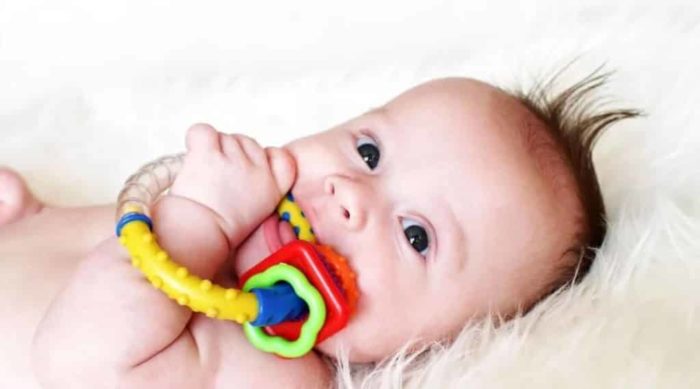
Prevention of bites
- Make sure that the nipple is in the toddler’s mouth only during feeding, and no longer.
- If you notice that your baby will soon start teething, you urgently need to buy him special teethers on which he can scratch his gums and will not think about biting his mother’s breast.
- It is important that the baby's nasal passages are cleared before feeding. Be sure to take the time to do this. Otherwise, willy-nilly, the baby will accidentally squeeze your breast with his teeth.
- While feeding, do not be distracted by any extraneous factors, do not talk to other people, do not watch TV. Focus all your attention on the baby, talk to him, tell him how much you love him. It is very important for the baby to have direct communication with his mother, especially at such an intimate moment.
- Make sure that your baby eats enough and that you have enough milk in your breasts. To do this, you can eat foods that stimulate increased lactation.
Incorrect attachment
This is one of the most common reasons why a baby bites the breast, especially in the first months of life.
The baby's mouth is designed in such a way that, with the correct grip and active sucking, he is physically unable to bite his mother. After all, the teeth are located 2-3 cm behind the nipple.
But if a child takes the breast shallowly or slides onto the nipple during feeding, then bites are very likely. Let's remember what a correct grip looks like:
- the baby's mouth is wide open, approximately 130-150 degrees;
- lips turned outward;
- chin pressed to mother's chest;
- the nipple is captured along with the areola;
- the grip is asymmetrical, deeper at the bottom than at the top;
- the tip of the nipple is directed towards the sky.
It is this position that prevents the child from accidentally biting his mother.
How to stop a child from biting the breast
It all depends on what exactly caused the baby’s behavior. Based on this, you can understand how to make your child quit this idea.
- If your child has a runny nose, clear the nasal passages. “How to clean a child’s nose”
- If the baby does not have enough of your attention, stop being distracted during feeding, talk to the baby, praise him.
- If you have a lack of milk, take medications that will stimulate lactation.
- If your baby is teething, buy special devices to relieve itching at the pharmacy. “When do children start cutting their first teeth?”
- If your little one bites his nipple when he falls asleep, don’t miss this moment and remove your breast in time.
- If the reason is that you are taking the breast from the baby too early, make sure that the baby is full, and only then remove the nipple, do not rush the baby.
- If you applied the little one incorrectly, find out how to do it and correct the situation.
- If the bites were provoked by another reason, it is necessary to tell the baby in a stern voice that he did something bad, and if he did not bite during feeding, then be sure to praise the child. Alternatively, you can stop feeding after the baby bites you, just remember to remove your breast correctly and painlessly. This way the baby will be able to develop a conditioned reflex: if he bites, he stays hungry.
Now you know what this behavior of a baby can entail. You know how to prevent yourself from such a situation and what to do if it has already happened. You must remember that breast milk is the most valuable thing for your baby, and breasts are the source of this nutritional treasure. Therefore, you must not only maintain personal hygiene and eat right, but also ensure that your nipples are not injured. It is possible that you yourself will decide to give up breastfeeding just because it is very painful, the wounds do not have time to heal, and the baby is already making new ones. Therefore, it is better to figure it out in time and identify the cause or follow preventive methods in order to prevent such a situation from occurring in your life and the life of your baby.
How to prevent bites while feeding
The best solution to any problem is to be able to prevent it. Whatever the reason for breast biting, it is not so serious that the mother cannot cope with it on her own. A woman just needs to act gently, but at the same time decisively. If the baby begins to bite during feeding, then it is necessary to carefully monitor the entire process and respond in a timely manner at the first signs of an attack. But you shouldn’t strain yourself too much and wait for pain every moment - this will only provoke the child.
- If the baby is teething, then bites are a temporary phenomenon. A woman always needs to be prepared so that in case of an attack she can immediately pull the nipple out of her mouth. Before feeding, it is recommended to let the baby chew on a special teething ring, having cooled it first, or massage the baby’s gums with a brush attachment. This will relieve the discomfort. Various gels will also come to the rescue to relieve pain and itching. They treat the baby's mouth several times a day.
- Since breast bites are often caused by improper grip, the situation should be corrected. Ideally, the baby's mouth should be wide open (more than 130 degrees), his lips turned outward, and his chin pressed tightly to the mammary gland. From below, the baby grasps the nipple deeper than from above: its tip comes into contact with the palate of the toddler. At the same time, the areola is practically invisible from the outside.
- When a baby bites due to malnutrition, drastic measures must be taken. If he is already about six months old, the pediatrician will probably recommend introducing complementary foods. Well, if the baby is very small, then the mother will have to fight for her own milk so as not to switch to artificial feeding. Feeding on demand and increasing the number of breastfeeding will help improve lactation.
- Sometimes a woman has enough milk, but it is difficult for the baby to get it, especially if he was born prematurely or has neurological problems. Mothers with too tight breasts also often experience difficulties. Expressing before feeding will solve the problem here: after this, it will be much easier for the baby to suck. If the mammary glands are very large, then it is best to feed from under the armpit.
- If you have a runny nose, you need to clean your little one’s nose with an aspirator and remove any discharge. Doing this before feeding will reduce the likelihood of being bitten. It is better to place the baby vertically to the chest - this will make it easier for him to breathe.
- If the bites are caused by the child’s playfulness, then this behavior must be stopped: the baby must understand that the breast is not a toy, but a part of the body. When a woman sees that the baby is full and the expression on his face has changed (his eyes are laughing), it is important to stop feeding in time. If he managed to bite, then you should not scream too much and react too emotionally: the baby will think that his game is being supported. After the attack, immediately take the nipple and explain in a stern tone that mom is in pain: a menacing voice will bring the little one to his senses.
You should not be too zealous when teaching a child a lesson for biting, for example, leaving him alone in the room or demonstratively placing him in the arms of other family members.
- For an inquisitive baby, create a calm environment during feeding. The woman should calm the child, rock him, you can close the curtains, give the baby a toy. The baby should be fed in a position that is comfortable for the mother.
- Pay attention to the baby: no need to chat on the phone with friends, watch TV or do other things while feeding. These precious moments of togetherness will quickly pass and will not be repeated. And with such an attitude, the baby will never be bored.
Many mothers whose babies bite during feeding think about using special breast shields. But experts do not recommend doing this: due to these devices, the child is not able to grasp the nipple correctly, and this inevitably affects the volume of milk sucked, fraught with malnutrition in the baby and the development of lactostasis in the woman.
What to do to stop your baby from biting - photo gallery

To avoid bites due to a runny nose, you need to alleviate the baby’s condition as much as possible.

An overly inquisitive baby should create as calm an environment as possible for feeding.
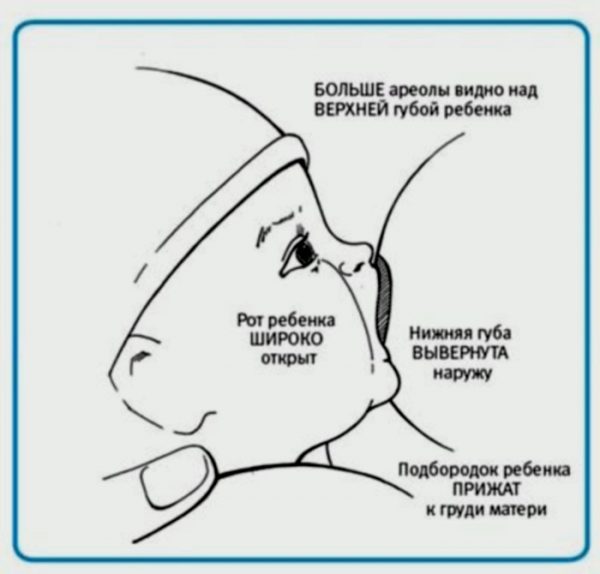
If the baby covers the chest properly, then a bite is practically excluded
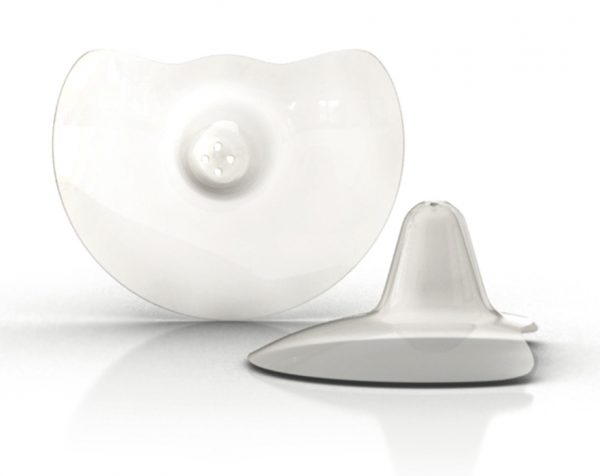
You can use a silicone breast pad, but experts do not recommend this.
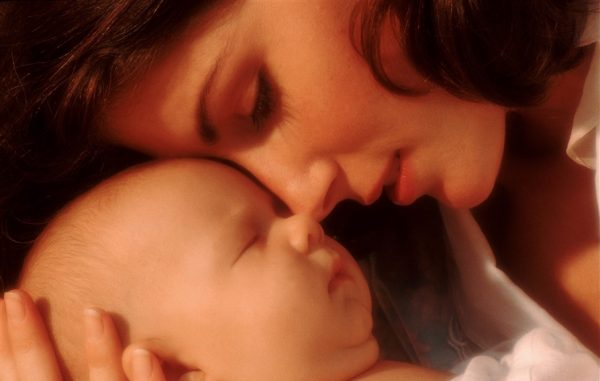
Feeding is a precious opportunity to bond with your baby and should not be neglected.
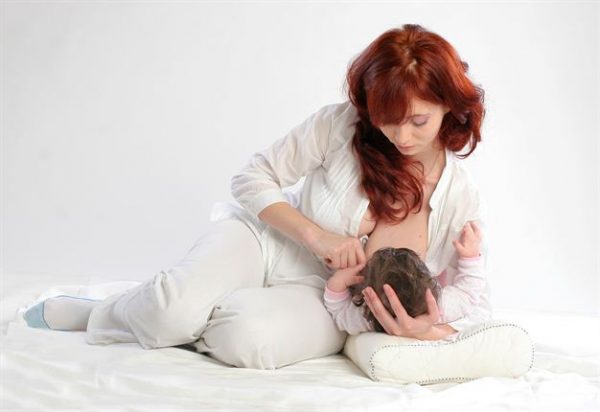
Underarm feeding is recommended when a woman has very large breasts.
Correctly attaching a baby to the breast - video
Lack of milk
There are two reasons why a baby may not have enough milk:
- the breast does not produce enough of it;
- milk is not released well.
But the child doesn’t care why there is not enough milk. In any case, he may begin to get irritated and, as a result, bite the nipple. In this way, the baby tries to force the breast to give him more food.
If there is a suspicion that the child is not eating enough, then you need to check whether this is true. First of all, monthly weight gain should be within the normal range.
If the baby really does not have enough milk, and he is older than 5 months, then, most likely, the pediatrician will advise introducing complementary foods. If the baby is younger than this age, then you need to fight for milk with all your might so that you don’t have to switch him to formula. To increase the amount of milk, you will first have to increase the number of feedings during the day and switch to feeding on demand. It is necessary to pay special attention to morning feedings, as they best stimulate milk production.
But it often happens that there is enough milk, but the baby cannot get it. This most often happens in premature babies and in children with neurological problems. It is also difficult for mothers with large, larger than size 4 breasts to feed.
If the breasts are very engorged and tight, then pumping the breasts beforehand helps. After this procedure, it is easier for the baby to suck.
Mothers with large breasts need to pay special attention to the position when feeding, especially if the baby was born premature. The underarm position is usually best in this case. It is easier for the baby to suck, and he gets enough, does not worry and does not bite the nipple.
